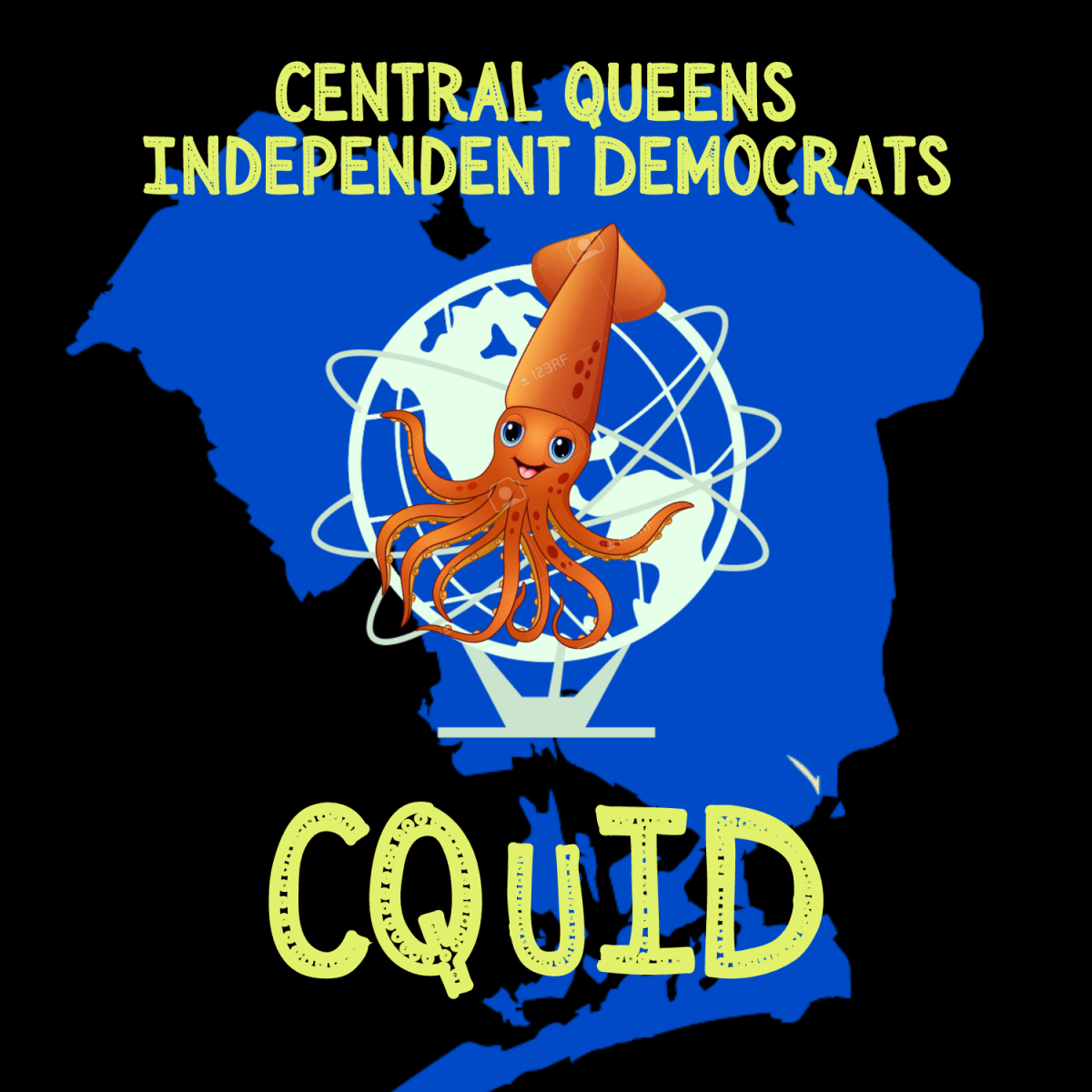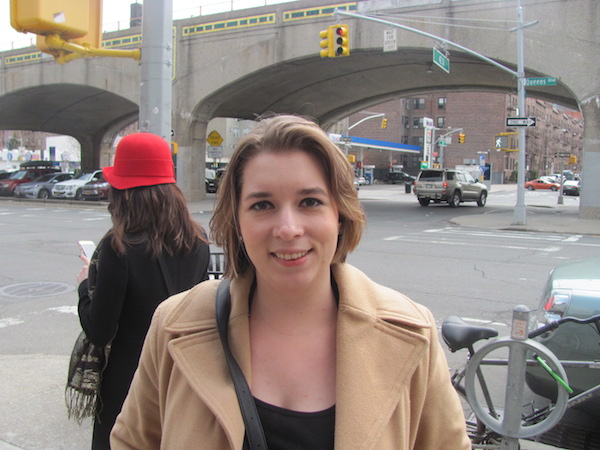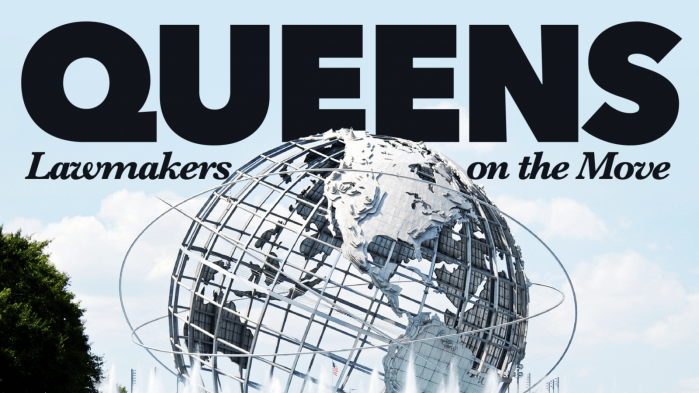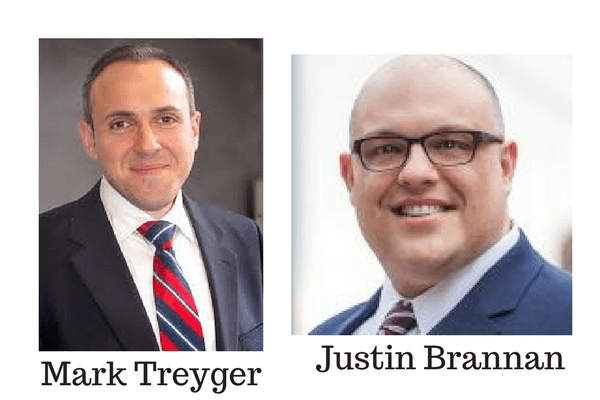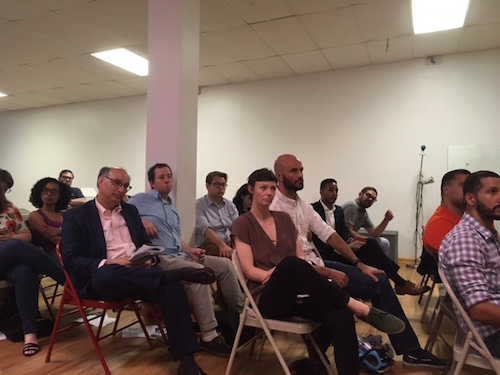A group of disgruntled politically minded residents in Central Queens are fed up with their local Democratic clubs so they decided to launch one of their own.
The progressive-minded Central Queens Independent Democratic Club, or CQuID (pronounced “squid”), was launched early last week to provide an alternative to the two existing lawmaker run clubs in the area. They are holding their inaugural meeting virtually on Thursday, January 14 at 7:30pm.
The new club was created in response to what founding members called autocratic and anti-democratic tendencies in the already existing clubs in Assembly District 28, the Queens Central Democratic Club (QCDC) which is associated with State Assemblymember Andrew Hevesi and the Geraldine A. Ferraro Democratic Club which is associated with City Councilmember Karen Koslowitz. The club is not geographically specific, a fact suggested by the logo –– an outline of the Borough of Queens, with a graphic of the Unisphere overlaid on top, complete with a cartoon squid with tentacles splayed.
“They’re all run very kind of top down autocratic where our local elected public officials who were also district leaders just run the club,” said Kaufer. “We’ve reached out within our own Democratic Party, reached out to our own leadership and tried to get them to operate in a more democratic fashion, but they’re not doing it. So we said, we’ll just be the change we want to see in the world.”
The creation of CQuID is the latest schism in an ongoing feud between rival factions in the Queens County Democratic Party over how the party should be run internally with newer, and oftentimes more politically progressive, members pushing for transparency, accountability and more democratic processes.
While it is not an offshoot of the organization, multiple founding members of CQuID either are or have been involved in the New Reformers, an organization that is not a political club that put forwards slates of candidates for lower level party offices such as district leader in the last election with the stated hopes of reforming the party from within.
And while CQuID echo’s that mission in many ways –– “We are going to operate democratically, we are going to operate transparently and accountable to our members,” said Kaufer –– it is also “focused on fighting for economic and racial justice and for grassroots democracy” according to the press release about it’s launch.
Queens County Politics was unable to reach a representative of the Geraldine A. Ferraro Democratic Club. Koslowitz’s council office also did not respond to requests for comment.
In response to criticisms that QCDC is autocratic and under Hevesi’s thumb, QCDC President Prameet Kumar said that their club, which was started in 2019, was “founded to provide an inclusive opportunity for community members to enter into the political fold.”
He confirmed that Hevesi handpicks two of the executive board positions, specific criticisms given by the defectors to the new club, but said that the power to appoint the Treasurer and Chair of Social Media and Communications was included in the bylaws and isn’t granted specifically to Hevesi himself but rather to whoever holds the 28th Assembly District office.
“The Assemblyman does not have a formal role within the club, nor does he have a board vote,” Kumar wrote. “Although some concerns were raised about the Assemblymember’s ability to appoint these positions, these specific concerns were brought to a vote and this organizational structure was passed by the founding club members at the bylaw meeting. There remain seven other board positions that any registered Democrat in New York State is eligible to run for in open elections.”
One of QCDC’s seven elected board positions is the Chairperson for Political Action, a position currently held by Richard Nuñez-Lawrence.
When Queens County Politics spoke with Nuñez-Lawrence last week, he said he was planning to resign from his post at QCDC and become a member of the newly formed CQuID.
He originally joined QCDC because he liked Hevesi’s mission of starting a more inclusive political club, he said. He ran for chairperson, won, and was looking forward to working with the board to implement some new ideas but immediately felt push-back, he said.
“It’s just been pervasive. It’s just a consistent space of we’re county, you’re not, and we’re going to, you know, we don’t really care what your initiatives are, we’re just going to be against it,” said Nuñez-Lawrence.
Ultimately, he decided it was time to leave.
“This is what you do in order to maintain your level of power and status,” he said. “You kind of nudge out the people who have a different perspective.”
Nuñez-Lawrence, however, specified that he never felt pushback from Kumar, QCDC’s president, or Hevesi himself.
He has high hopes that the new club will succeed where QCDC did not, he said.
Kaufer, the interim-president of CQuID, said that the club will have a strong grassroots focus. One important takeaway she had from the recent election season was that the old adage “all politics is local” really is true.
If a Democratic club is active, is most likely operated in a top down fashion she said, and that applies to local clubs all the way up to the Democratic National Committee is top down.
But she truly believes, she said, that if the party starts by building strength in the lower levels of the party, it’ll be able to build and grow from there.
“You can’t start with, like, the frosting,” Kaufer said. “You have to build the cake. You have to bake the cake first.”


